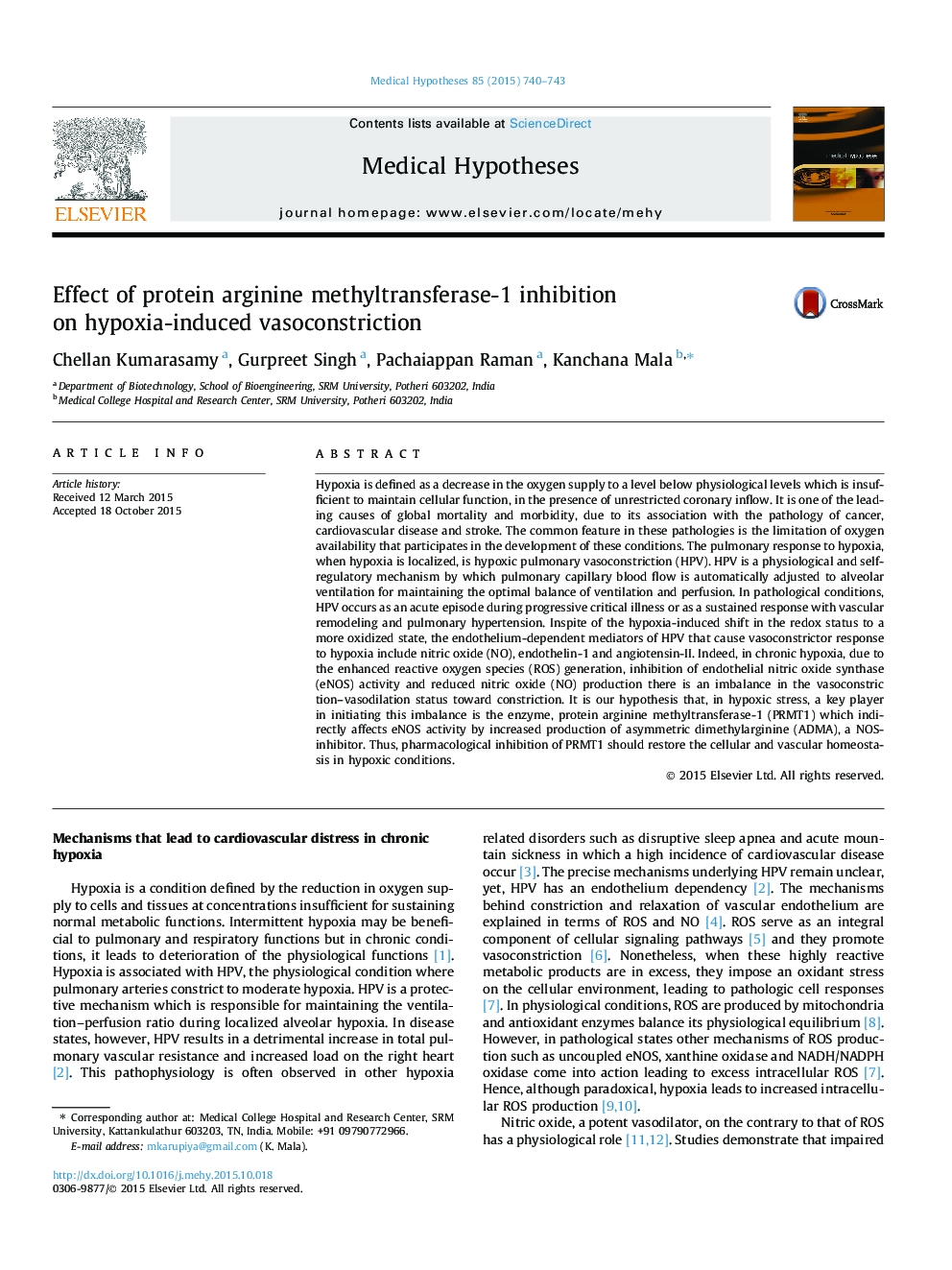| Article ID | Journal | Published Year | Pages | File Type |
|---|---|---|---|---|
| 5810766 | Medical Hypotheses | 2015 | 4 Pages |
Hypoxia is defined as a decrease in the oxygen supply to a level below physiological levels which is insufficient to maintain cellular function, in the presence of unrestricted coronary inflow. It is one of the leading causes of global mortality and morbidity, due to its association with the pathology of cancer, cardiovascular disease and stroke. The common feature in these pathologies is the limitation of oxygen availability that participates in the development of these conditions. The pulmonary response to hypoxia, when hypoxia is localized, is hypoxic pulmonary vasoconstriction (HPV). HPV is a physiological and self-regulatory mechanism by which pulmonary capillary blood flow is automatically adjusted to alveolar ventilation for maintaining the optimal balance of ventilation and perfusion. In pathological conditions, HPV occurs as an acute episode during progressive critical illness or as a sustained response with vascular remodeling and pulmonary hypertension. Inspite of the hypoxia-induced shift in the redox status to a more oxidized state, the endothelium-dependent mediators of HPV that cause vasoconstrictor response to hypoxia include nitric oxide (NO), endothelin-1 and angiotensin-II. Indeed, in chronic hypoxia, due to the enhanced reactive oxygen species (ROS) generation, inhibition of endothelial nitric oxide synthase (eNOS) activity and reduced nitric oxide (NO) production there is an imbalance in the vasoconstriction-vasodilation status toward constriction. It is our hypothesis that, in hypoxic stress, a key player in initiating this imbalance is the enzyme, protein arginine methyltransferase-1 (PRMT1) which indirectly affects eNOS activity by increased production of asymmetric dimethylarginine (ADMA), a NOS-inhibitor. Thus, pharmacological inhibition of PRMT1 should restore the cellular and vascular homeostasis in hypoxic conditions.
